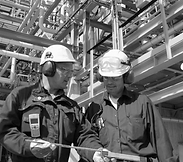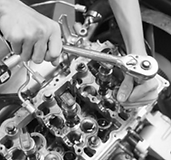Engineering and Technology Quarterly Reviews
ISSN 2622-9374




Published: 15 July 2019
Measurement of Standard Time Work with the Predetermined Motion Time System Method at the Production Department in PT.PIJ Sidoarjo
Wiwik Sumarmi
Universitas Muhamadiyah Sidoarjo, Indonesia

Download Full-Text Pdf
10.5281/zenodo.3334517
Pages: 101-107
Keywords: Methods Time Measurement, Work factor, Standard Time Work
Abstract
The purpose of this study is to measure standard work time in the production section at “PT. Prestasi Ide Jaya” (PT.PIJ) where there are several workers and machine operators, if between one of the operators on each machine does not work properly it will cause the production process to stop. In this study there are two variables, namely 1) the dependent variable is the time and movement of the machine operator, 2) the independent variable of several Therblig movements: a. reach out, b. take off, c. holding, d. direct, and e. transport. Measuring the standard time of operator movements with Work Factor and Time Measurement Methods. The calculation results can be concluded that the Time Measurement (MTM) and Work factor (WF) methods can provide a standard time that is following the standard time that is smaller than real conditions. Company is proposing to reduce operator movements that are not needed in the production process.
References
-
Wignjosoebroto, S. (2006). Ergonomi Studi Gerak dan Waktu: Teknik Analisis untuk Peningkatan Produktivitas Kerja. Guna Widya. Surabaya.
-
Sutalaksana, Iftikar, Z., dan Anggawisastra. (2006). Teknik Perancangan Sistem Kerja. ITB Bandung.
-
Herjanto, E. (2008). Manajemen Operasi Edisi Ketiga. Grasindo. Jakarta.
-
Lesmono, I. (2013). Aplikasi metode MOST (Maynard Operation Sequence Technique) untuk Menentukan Waktu Baku Kerja dalam Upaya Meningkatkan Jumlah Produksi. Skripsi Teknik Industri. UIN SUSKA. Riau
-
Safitri, D.M,. dan Wulandari, P.A. (2009). Perbandingan Pengukuran Waktu Baku dengan Metode Stopwacth Time Series dan Metode Ready Work Factor pada Departemen Hand Insert PT. Sharp Indonesia. Jurnal Teknik Industri.
-
Rizani, N., Safitri, D., dan Wulandari. (2013). Perbandingan Pengukuran Waktu Baku Dengan Metode Stopwatch Time Study dan Metode Ready Work Factor (Rwf) pada Departemen Hand Insert Pt. Sharp Indonesia . Jurnal Teknik Industri.
-
Febriana, N.V., Lestari, E.R., dan Anggarini, S. (2013). Analisis Pengukuran Waktu Kerja dengan Metode Pengukuran Kerja Secara Tidak Langsung pada Bagian Pengemasan di PT. Japfa Comfeed Indonesia Tbk. Jurnal Teknologi Industri Pertanian. Hal 1-7.
-
Rinawati, I., Puspitasari, D., dan Fatrin, M. (2012). Penentuan Waktu Standar dan Jumlah Tenaga Kerja Optimal pada Produksi Batik Cap (Studi Kasus: Ikm Batik Saud Effendy, Laweyan). Jurnal Teknik Industri Vol 7(3) : 145-150.
-
Jono. (2015). Pengukuran Beban kerja Tenaga Kerja dengan Metode Work Sampling. Jurnal Teknik Industri Vol 13(2); 115-228
-
Sarvia, Eliyani. (2013). Analisis Perbaikan Sistem Kerja Untuk Peningkatan Kapasitas Produksi Dilihat dari Aspek Ergonomi (Studi Kasus di Perakitan Rangka Kursi Rotan). Jurnal Teknik Industri Vol 3 (1).



